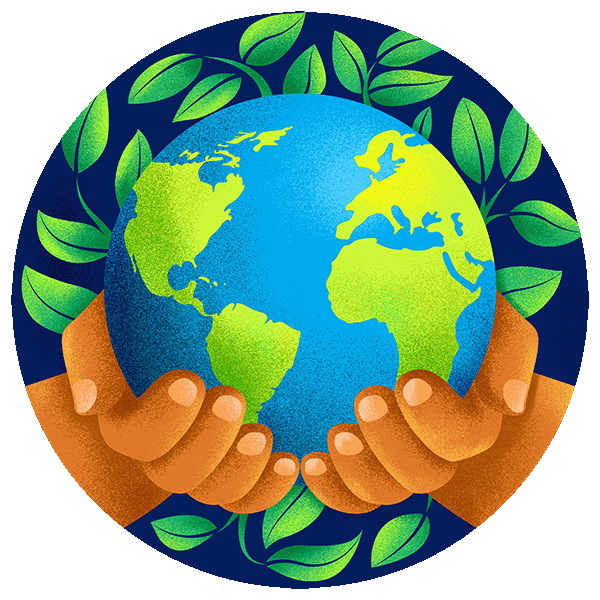
Cathy Fournier On Indigenous Identity And Health
Because of colonisation, many Indigenous Peoples face issues of discovering who they are, in terms of identity. Sometimes, this is as a result of education or religion.
Sometimes we question our own indigeneity, and perhaps, in some cases, there are reasons for this.
Each of us has a different past, a different coming together of events, that has led to who we are, and where we come from.
Cultural Survivals Avexnim Cojti spoke to Cathy Fournier, from the University of Torronto, in Canada.
The Sacred Feminine
There are many issues that Cultural Survival has covered and fought for as an organization over the past 47 years, and these issues include but are not limited to land rights, Indigenous languages, traditional knowledge, self-determination, freedom of expression and so on. One thing that stands out for our Executive Director Galina Angarova, and is very close to her heart, is the topic of The Sacred Feminine.
Radio Cotacachi, Cosmovisión Y Saberes Ancestrales, Segunda Parte
Desde las radios comunitarias se producen y trasmiten los conocimientos ancestrales. En este programa podemos conocer sobre la Parteria que aún se sigue practicando en una de las comunidad Indígenas de Ecuador. !Escuche, descargué y comparta!
Imagen:
Capturado por Cultural Survival
Esta es una producción de Radio Cotacachi y distribuido por Cultural Survival. Este programa es gratuito para escuchar, descargar y compartir.
We Are Not Defending Nature, We Are Nature Defending Itself!
Leaders and activists from all over the planet converged in Madrid, Spain to attend COP25, The United Nations Climate Change Conference.
At the forefront of half a million protesters who marched through the Spanish Capital City, were indigenous voices who led the charge in what has become a monumental demonstration to highlight the global challenges that we’re all facing as a result of climate change.
Ta’kaiya Blaney (Tla A'min Nation) from Indigenous Climate Action was there, and we got a chance to speak to her.
Indigenous Peoples Face Obstacles at the UN Climate Action Summit
Cultural Survival's Avexnim Cojti (Maya Ki'che) spoke to Janene Yazzie about the participation of Indigenous Peoples at the UN's Climate Action Summit.
Janene Yazzie (Navajo) is Development Program Coordinator for International Indian Treaty Council and the council’s representative as co-convenor of the Indigenous Peoples Major Group of the U.N. High-level Political Forum on the 2030 Sustainable Development Goals.
Production: Shaldon Ferris (San, South Africa)
Image: Janine Yazzie
Cultural Survival Has A New Executive Director!
Galina Angarova is a representative of the Buryat people, a Russian Indigenous group. Galina holds a Master’s Degree in Public Administration from the University of New Mexico. She served on the board of International Funders for Indigenous Peoples for seven years. Please join us in welcoming Galina. She will commence her role on October 1st, 2019.
PRODUCTION
Shaldon Ferris
Interviewee: Galina Angarova
Image: Galina Angarova
Music: Canmandalla by Yarina, used with permission.
Victoria Tauli-Corpuz On Traditional Knowledge
The 18th session of the United Nations Permanent Forum on the rights of Indigenous Peoples was held from April 22nd to May 3rd 2019. The theme for this year was Traditional Knowledge: Generation, Transmission and Protection.
We got a chance to speak via Skype to the United Nations Special Rapporteur on the Rights of Indigenous Peoples, Victoria Tauli Corpuz, on the meaning behind this particular theme and why it was chosen.
MUSIC
Lights in the Forest by Yarina.
Used with permission.
Indigenous Women's Health
Indigenous women represent one of the most vulnerable and marginalized populations in the world. For centuries, Indigenous Women have been subjected to relentless discrimination and different types of violence based on gender, indigeneity, and class. They are deprived from even basic human rights such as access to health services, education and employment. This Indigenous Rights Radio program depicts Indigenous Women and access to quality health services.
Producer : Dev Kumar Sunuwar and Bia'ni Madsa' Juárez López
Interviews:
Zero Discrimination Against Women
In March we commemorate two very important international days, Zero Discrimination Day on March 1st, as well International Women's day on March 8th.
How are Indigenous Peoples discriminated against, and furthermore, how are Indigenous Women discriminated against?
In this program we pay homage to Xoroxloo Duxee, an Indigenous Woman from Botswana who died from starvation and dehydration because access to a water well in the desert had been restricted.
Producer: Shaldon Ferris (KhoiSan, South Africa)
Interviewee: //Uruseb, researcher on Indigenous Peoples.
Maasai Indigenous People Of Kenya and Their Food Systems
Maasai are semi-nomadic pastoralists who migrate within semi-arid lowlands and more humid uplands to obtain water and pasture. The large majority of them obtain their livelihood through husbandry of cattle, goat and sheep. Their food culture is very unique as they rely on meat, milk and blood from cattle for protein and energy needs. But lately with the gradual loss of elder members of the Maasai community who carry most of this people’s indigenous knowledge, Maasai indigenous communities are losing their customary practices.
Producer : Dev Kumar Sunuwar
